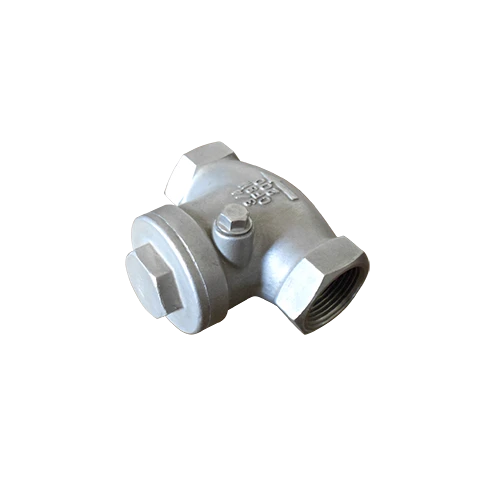Mobile:+86-311-808-126-83
Email:info@ydcastings.com
Design and Analysis of Diffuser Pump Casing for Enhanced Performance and Reliability in Fluid Systems
Understanding Diffuser Pump Casings Design and Functionality
A diffuser pump casing plays a crucial role in the operational efficiency and performance of centrifugal pumps, particularly in applications requiring high flow rates and specific pressure outputs. In this article, we will explore the design, functionality, and significance of diffuser pump casings.
What is a Diffuser Pump?
A diffuser pump is a type of centrifugal pump that utilizes a series of diffusers to convert the kinetic energy of the fluid into pressure energy effectively. In this configuration, the fluid is accelerated through an impeller, then enters a diffuser where its speed decreases, resulting in an increase in pressure. This process is essential in creating a steady flow of fluid, making diffuser pumps vital in numerous industrial applications, including water supply, irrigation, and chemical processing.
Role of the Pump Casing
The pump casing, often referred to as the volute or housing, is a significant component of the diffuser pump. It encompasses the impeller and the diffuser sections, guiding fluid flow through the system. The design of the pump casing not only affects the efficiency of the pump but also determines the ease of maintenance and repair.
Casing materials can vary, typically ranging from cast iron for general-purpose applications to stainless steel or specialized alloys for corrosive environments. The choice of material is critical, as it must withstand not only the pressure but also the chemical nature of the pumped fluid.
Design Considerations
Several design considerations are essential when evaluating diffuser pump casings
diffuser pump casing

1. Hydraulic Performance The casing must be designed to minimize turbulence and maintain a streamlined flow of fluid. This reduces energy losses and enhances the efficiency of the pump.
2. Strength and Durability Given the high pressures involved, the casing material must possess adequate strength to resist deformation and failure under operational conditions.
3. Corrosion Resistance In environments where the fluid may be abrasive or corrosive, the casing must also have corrosion-resistant properties to prolong the life of the pump.
4. Accessibility for Maintenance A well-designed pump casing allows for easy access to internal components for maintenance and inspection. This is particularly important to minimize downtime and ensure reliable operation.
The Importance of Diffuser Design
The diffuser's design within the casing is as critical as the casing itself. The spacing, angle, and number of diffuser stages influence the pump's overall efficiency and flow characteristics. Each diffuser stage is designed to slow down the fluid while converting kinetic energy into pressure. The careful design of these components ensures optimal performance and minimal energy loss.
Conclusion
In summary, the diffuser pump casing is a vital component that influences the performance, efficiency, and longevity of diffuser pumps. Understanding its design and function is crucial for engineers and operators tasked with maintaining and optimizing pumping systems. As industries increasingly demand more efficient and reliable pumping solutions, the evolution of diffuser pump casing design will play a pivotal role in meeting these challenges, ultimately driving innovation and sustainability in fluid transport.
-
Why Should You Invest in Superior Pump Castings for Your Equipment?NewsJun.09,2025
-
Unlock Performance Potential with Stainless Impellers and Aluminum End CapsNewsJun.09,2025
-
Revolutionize Your Machinery with Superior Cast Iron and Aluminum ComponentsNewsJun.09,2025
-
Revolutionize Fluid Dynamics with Premium Pump ComponentsNewsJun.09,2025
-
Optimizing Industrial Systems with Essential Valve ComponentsNewsJun.09,2025
-
Elevate Grid Efficiency with High-Precision Power CastingsNewsJun.09,2025











